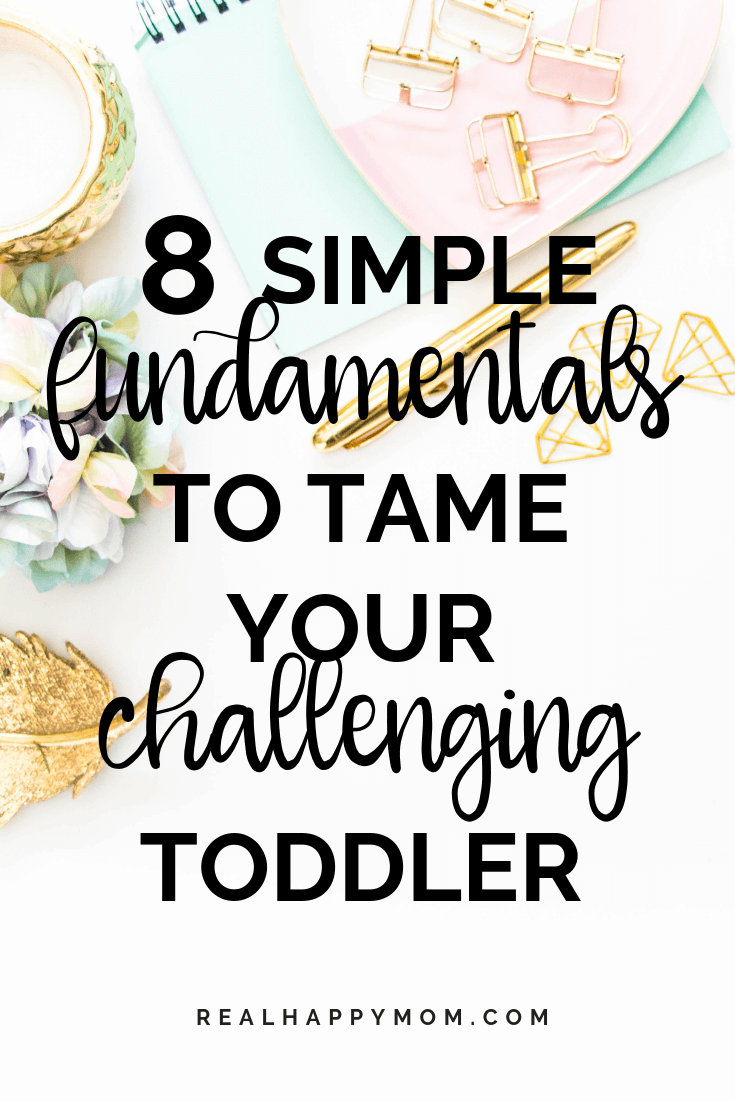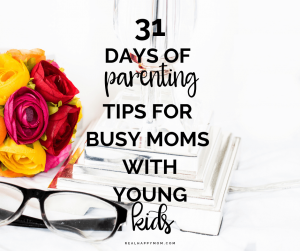As a parent, you love your child more than anything else in the world, but even the best-behaved children have their moments. Those with children are often reminded that parenting is a 24/7 job.
Does your toddler constantly make you pull out your hair? Don’t worry! I’ve got 8 tips for taming your wild toddler.

Understand why your child is misbehaving
Before you turn into mommy monster, stop and think about why your little might be misbehaving. Has your little one eaten yet? Are they overdue for a nap?
Children may misbehave when they’re hungry or tired. If you have made sure your little one has had enough to eat and take naps regularly, you’ll have fewer run-ins with tantrums.
Kids also misbehave when they’re feeling angry or frustrated, especially if they’re told no. This is always a sure way to get my little guy to have an episode at my house.
Avoid giving your toddler everything they want, whenever they want it. Remember, that is not the reality of life. Helping them understand this when they are young will help prevent the entitled, sensitive adults that we have in the world.
Just keep in mind that some children throw tantrums when they aren’t given their way. For instance, their toy is not standing up the way that they want it too. I have seen it happen so many times.
Give a little attention
Many times, little ones misbehave because they’re seeking attention. Since they don’t know the difference between positive and negative attention, they’ll act out when they want you to notice them.
By giving children positive attention, you’ll reduce the tendency for them to act out. Spend as much time as possible with your children to provide plenty of positive attention.
Honestly, sometimes they don’t need much of your time. I have found that when my son starts acting up because of attention, I will stop what I am doing for 10 minutes and sit down and play with him.
Then I will tell him that I got to get back to making dinner or laundry, but I am close by if he needs me.
This usually helps him (and me) to calm down and have a little self-play for 20 to 30 minutes without him asking me for something.
Stick to a daily routine
When circumstances are out of the ordinary, children will sometimes act differently. By sticking to a consistent daily routine, you’ll reduce the chances of that happening.
Having a routine also make your child feel safe and secure and later provides structure and discipline in their life.
When your little one gets older, having a routine helps them free you up because they will need less supervision and helps them be more independent.
Having a daily routine will also help instill good habits like brushing their teeth.
Remember mom, routines are good for kids and adults too. If you have a routine, you will become more efficient and get more done.
Set clear boundaries
Set rules and ensure your child follow them at home. It’s so much easier to discipline a child at home when you can take your time parenting and be patient.
There is nothing worse than taking your kids out and your little acts up AND you are not able to get them under control.
If you can get your child to be well-behaved at home, you’ll have an easier time getting them to do the same in outside of the house.
Suggest another activity
If your child is doing something you don’t want them to do, suggest an activity that’s more acceptable.
For example, your little one is jumping on the couch and you really don’t want him to do that. Find his favorite toy and ask if he wants to play with that.
If the child complies with your suggestion, you’ll have corrected the behavior without anyone getting upset. Win-win for everyone!
Give your child choices
If you let your children choose between two or three different activities, they’re likely to be more cooperative.
Providing several choices increases the chances of you suggesting something that they would want to do. For instance, it is time to put on their PJs, you can ask your little one if they want the red or the blue PJs tonight.
Letting your kids make the decision, rather than just being told what to do, gives them a sense of power. This helps tremendously when kids are having power struggles.
Avoid making empty threats
If you threaten a punishment, you need to be prepared to follow through with it. If you fail to follow through with a threat, your child will learn how to take control of the situation.
Young kids are smart. They’ll learn to patiently wait for you to cave in, so they can get what they want.
When you follow through with your punishments, your child will learn that there are consequences for failing to follow the rules.
Whenever possible, be sure the consequences happen immediately.
Avoid waiting until you get home, two hours later, to give a toddler a timeout. They’ll think they got away with bad behavior earlier, and they don’t understand why they’re being punished later.
Ensure that your consequences are age appropriate. A general rule of thumb is to give a toddler a timeout that lasts for 1 minute for each year of their age. For example, a three-year-old can handle a 3-minute timeout and a five-year-old can handle one that lasts 5 minutes.
Don’t let your little one make you feel guilty. You are helping them become awesome big kids that will grow up to be amazing adults.
Praise positive behavior
When parents have wild kids children they often focus on punishments and consequences.
By praising or rewarding good behavior, you’ll be giving your child the attention they desire while also reinforcing good behavior.
Don’t focus on the behavior you don’t like. Instead, focus on the positive things your child is doing.
Let’s recap
Remember to try to find out why your child is misbehaving. Give your child attention and have a routine to follow throughout the day. Don’t forget to set clear boundaries and avoid empty threats.
If your child is starting to get out of control, stay calm and remember these tips. Getting frustrated or angry will only make things worse for both you and your child.
On the other hand, staying calm and using these strategies will most likely result in your child learning to behave and cooperate with you. In the end, everyone will be happier.

This post is a part of the series 31 Days of Parenting Tips for Busy Moms With Young Kids. Each day throughout the series I am discussing a different topic regarding parenting young kids. I’d love for you to follow along and share this series with moms who may need some support or just to hear that they aren’t alone in their journey of raising young kids.
Find all of the posts in one place on the series homepage: 31 Days of Parenting Tips for Busy Moms With Young Kids

[…] You’ll likely get some back talk, but avoid allowing that to fuel your anger. Focus on parenting first! […]